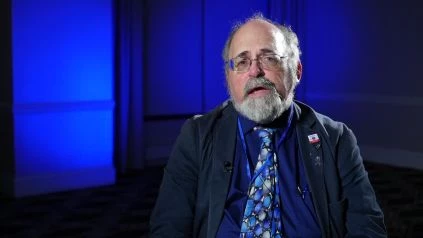Corey J. Langer, MD, FACP of the University of Pennsylvania talks about 2018 NSCLC trends in prognosticate refinement and the “tsunami” of trials assessing combinations of drugs. There are two general trends for non-small cell for 2018 and beyond. There will be refinements to predict and to prognosticate. Select patients are optimally treated with single-agent immunotherapy up front, in this case, only 50% or higher expression correlates to a clear survival advantage for pembrolizumab over standard platinum-based chemotherapy.
Overtime, more markers tend to emerge and tumor mutation burden is one of them. In fact, it will eventually tramp PD-L1 testing or be assessed coincidentally with PD-L1. Its also important to look into other assays, T-cell exhaustion markers, refining clinical assessments and view patients in three categories Never, Former and Current Smoker. Looking into the smoking history of the patient What kind of cigarettes? How many packs per day? and other related questions.
As for other therapeutic trials, there will be a tsunami of clinical trials assessing combinations of drugs. So, PD-1, PD-L1 inhibitors in combination with chemo versus chemo alone in the front-line setting, at least 68 trials of that nature that might be reporting in the next few months. Around 50% or higher group of studies looking at various combinations of pembrolizumab, for example, plus ramucirumab versus perbrolizumab alone. There is no guarantee that all patients will be cured, but, there is a hope of a double digit percentage of patients who will be enjoying long-term survival, free of ongoing treatment that werent observed previously.

